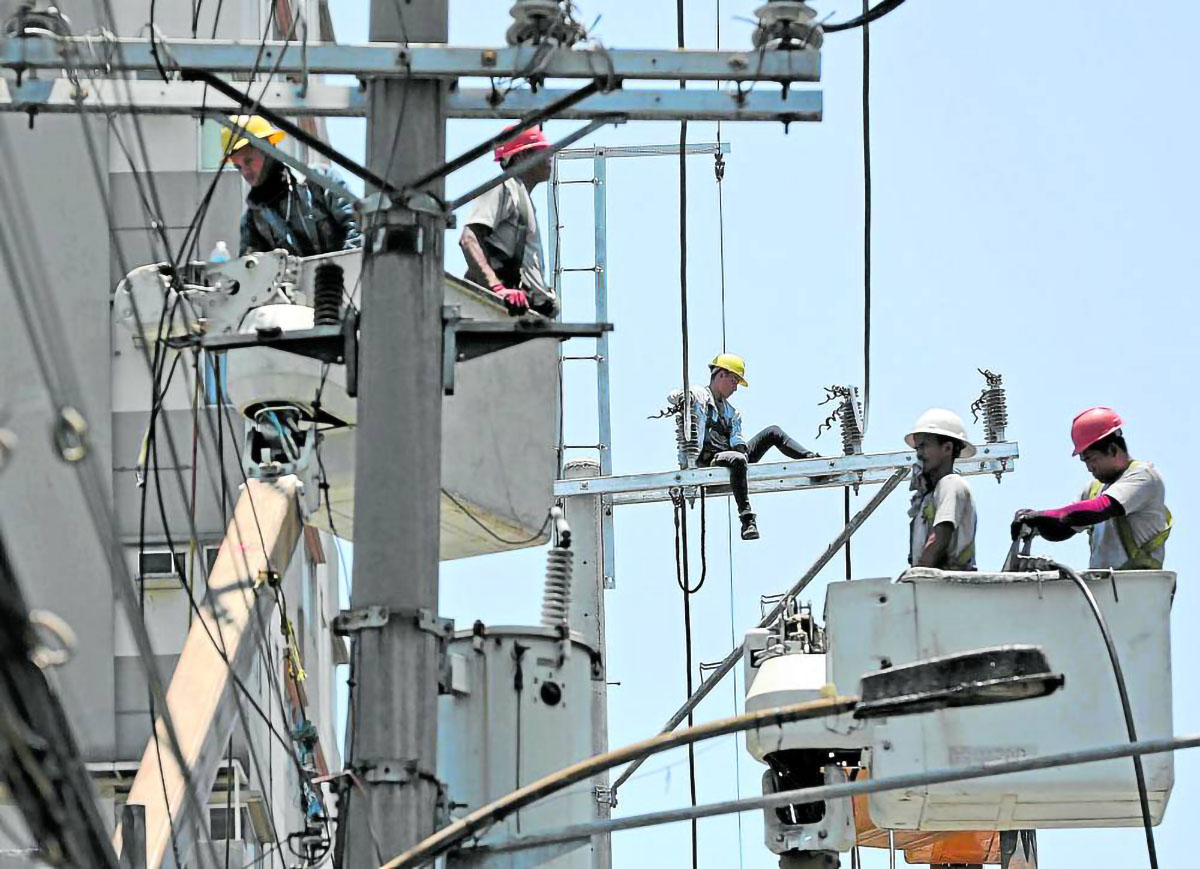Meralco: Expect hike in May electricity bills

BRACE FOR INCREASE Manila Electric Co. customers are in for a shock when they get their electricity bills this month. Electricity demand has been increasing as people use cooling appliances amid rising heat indices in most parts of the country, including Metro Manila. —INQUIRER FILE PHOTO
As expected, electricity rates are tipped to surge this month following weeks of rising consumption and declining supply that hit customers of power distributor Manila Electric Co. (Meralco).
Meralco vice president and head of corporate communications Joe Zaldarriaga said that estimates “point to [a] higher generation charge this month.”
“This is mainly due to higher [Wholesale Electricity Spot Market] prices brought about by the tight supply condition, as power demand surged along with higher heat indices,” Zaldarriaga said in a message. But he did not give additional details.
According to Meralco, peak demand in Luzon rose by about 2,400 megawatts compared with March and the Luzon grid recorded six days of yellow alerts and five days of red alerts in April alone.
That same month, the power distributor decreased its rate by almost one peso, or P0.9879 per kilowatt-hour (kWh), bringing the overall rate to P10.9518 per kWh.
Article continues after this advertisementThe Energy Regulatory Commission earlier asked distribution utilities and electric cooperatives to initiate talks with their suppliers to stagger payments of electricity bills even without its approval to alleviate the expected rate increase.
Article continues after this advertisementSince April 16, the National Grid Corp. of the Philippines has been hoisting a red or yellow alert in many parts of the country, mostly in Luzon and the Visayas, as demand rose while supply dipped because of the unavailability of many power facilities.
On Thursday, however, the power supply nationwide was at a normal level.
Dam water levels down
Meanwhile, water levels at several dams across the country continued to decline, further straining supply for Metro Manila and its environs.
Data from the Philippine Atmospheric, Geophysical and Astronomical Services Administration (Pagasa) on Thursday showed that five of the eight dams it monitors lost water over the past 24 hours. All eight dams also registered below-normal water levels.
Angat Dam, which provides around 90 percent of Metro Manila’s water, saw its level drop by 0.4 meters over the past 24 hours to 184.38 meters—close to its minimum operating level of 180 meters. Angat is now over 28 meters below its high water level of 212 meters.
Ipo Dam also dipped further below its normal level, with a water level reading of 99.69 meters against its ideal 101.1-meter mark after a 0.04-meter drop.
Ipo and Angat, along with La Mesa Dam, form the water system supplying Metro Manila. La Mesa Dam’s level fell 0.02 meters to 75.09 meters.
Slight increases
On the other hand, Ambuklao and Binga reservoir levels in Benguet actually rose slightly, but San Roque Dam in Pangasinan dropped 0.11 meters to 226.82 meters.
Pantabangan Dam rose by 0.02 meters to 173.63 meters but is still well below ideal levels. Its receding waters recently exposed remnants of a 300-year-old town that was submerged when the dam’s reservoir was built in the 1970s.
Magat Dam, used mainly for irrigation, flood control and hydropower, lost another 0.26 meters, leaving it at 177.4 meters.
“El Niño in the tropical Pacific Ocean continues to weaken but impacts such as hotter and drier conditions still persist,” Pagasa said in an advisory. However, it noted that the El Niño Southern Oscillation was expected to change beginning this month until July.
It also said there was a 60 percent chance of a “likelihood for La Niña to develop during the June-July-August 2024 season.”